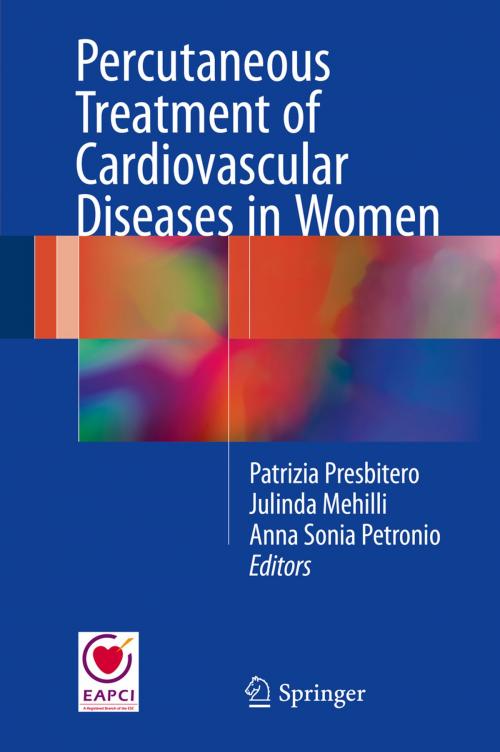Percutaneous Treatment of Cardiovascular Diseases in Women
Nonfiction, Health & Well Being, Medical, Surgery, Thoracic, Specialties, Internal Medicine, Cardiology| Author: | ISBN: | 9783319396118 | |
| Publisher: | Springer International Publishing | Publication: | September 20, 2016 |
| Imprint: | Springer | Language: | English |
| Author: | |
| ISBN: | 9783319396118 |
| Publisher: | Springer International Publishing |
| Publication: | September 20, 2016 |
| Imprint: | Springer |
| Language: | English |
This book describes a wide range of interventional procedures currently employed in the treatment of cardiac diseases in women with the aim of enabling not only interventional cardiologists but also cardiologists and cardiac surgeons to refine their approach to female patients and thus improve outcomes. The book reflects the increasing awareness of gender differences with regard to coronary artery disease and structural valve heart disease. Examples include myocardial infarction, which carries a worse prognosis in women in part because they suffer from this disease mostly in the 7th decade of life, present more frequently with hemodynamic instability and later from symptom onset, and have fragile, small and tortuous coronary arteries that are more technically demanding in the context of primary percutaneous coronary intervention. Another example is symptomatic aortic stenosis, which carries a better prognosis in women who undergo trans-catheter aortic valve implantation partially due to a better annulus-prosthesis match, which leads to less residual paravalvular regurgitation, better left ventricular function and lower aggregation of comorbidities. Further, in women left ventricular response to aortic stenosis is typified by muscle hypertrophy with a small ventricular cavity. These differences are reflected in the clinical manifestations and their impact on diagnosis, treatment, and choice of tools and devices for use in interventional procedures. By explaining the at times subtle variances in disease and treatment techniques for female and male patients, this book will help practitioners select the most appropriate procedures and materials in a range of settings.
This book describes a wide range of interventional procedures currently employed in the treatment of cardiac diseases in women with the aim of enabling not only interventional cardiologists but also cardiologists and cardiac surgeons to refine their approach to female patients and thus improve outcomes. The book reflects the increasing awareness of gender differences with regard to coronary artery disease and structural valve heart disease. Examples include myocardial infarction, which carries a worse prognosis in women in part because they suffer from this disease mostly in the 7th decade of life, present more frequently with hemodynamic instability and later from symptom onset, and have fragile, small and tortuous coronary arteries that are more technically demanding in the context of primary percutaneous coronary intervention. Another example is symptomatic aortic stenosis, which carries a better prognosis in women who undergo trans-catheter aortic valve implantation partially due to a better annulus-prosthesis match, which leads to less residual paravalvular regurgitation, better left ventricular function and lower aggregation of comorbidities. Further, in women left ventricular response to aortic stenosis is typified by muscle hypertrophy with a small ventricular cavity. These differences are reflected in the clinical manifestations and their impact on diagnosis, treatment, and choice of tools and devices for use in interventional procedures. By explaining the at times subtle variances in disease and treatment techniques for female and male patients, this book will help practitioners select the most appropriate procedures and materials in a range of settings.















